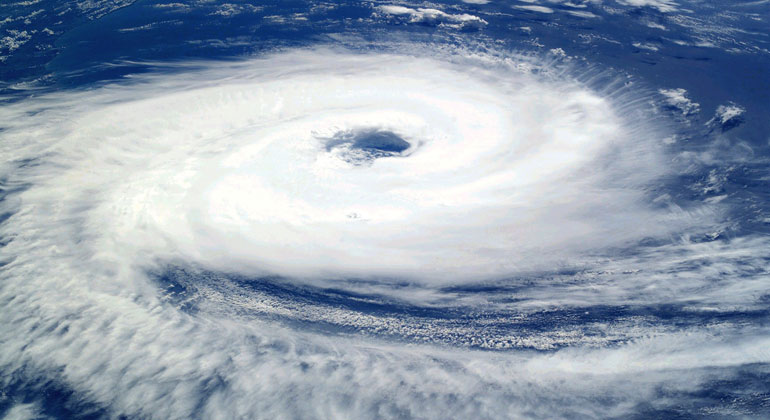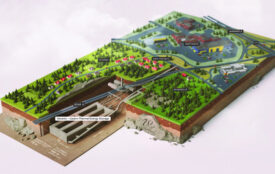A fifth higher: Tropical cyclones substantially raise the Social Cost of Carbon
Extreme events like tropical cyclones have immediate impacts, but also long-term implications for societies.
A new study published in the journal Nature Communications now finds: Accounting for the long-term impacts of these storms raises the global Social Cost of Carbon by more than 20 percent, compared to the estimates currently used for policy evaluations. This increase is mainly driven by the projected rise of tropical-cyclone damages to the major economies of India, USA, China, Taiwan, and Japan under global warming.
“Intense tropical cyclones have the power to slow down the economic development of a country for more than a decade, our analysis shows. With global warming, the share of the most intense tropical cyclones is expected to increase so it becomes more likely that economies may not be able to recover fully in between storms,” explains Hazem Krichene, author and scientist at the Potsdam Institute for Climate Impact Research (PIK) at the time the research was conducted. That is why long-term implications like reductions in economic growth caused by tropical cyclones may harm economic development even stronger than the direct economic damage of the storms.
The so-called Social Cost of Carbon is a dollar estimate for future costs of societies resulting from the emission of one additional ton of carbon dioxide in the atmosphere. This key metric is widely used in policy evaluations, as it allows comparing the costs of climate change for societies with the costs of climate mitigation measures. “However, long-term effects of extreme events are not taken into account so far, so that current Social Cost of Carbon estimates only reflect a part of the actual costs. This means that the real costs are probably even higher than currently estimated and the benefits of climate mitigation consequently underestimated,” co-author Franziska Piontek from PIK says.
Hotter climate, more intense tropical cyclones, higher costs
For their study the researchers analyzed the economic damages caused by these storms in 41 tropical-cyclone prone countries over the period from 1981 to 2015 and projected them for future global warming scenarios. In contrast to previous studies they thereby accounted for the mostly negative long-term impacts of these storms on economic development. The researchers found that these impacts increase the Social Cost of Carbon by more than 20 percent globally (from 173 US$ to 212 US$ per ton CO2) and by more than 40 percent in the analyzed tropical-cyclone prone countries – compared to the Social Cost of Carbon estimates currently used for policy evaluations.
“When it comes to extreme events, much focus is put on immediate economic damages. However, it is as crucial to better quantify the overall costs of these events to inform societies upon the real costs of climate change and the climate impacts that can be avoided by effective climate action”, concludes study author Christian Otto from PIK.
- Hazem Krichene, Thomas Vogt, Franziska Piontek, Tobias Geiger, Christof Schötz, Christian Otto (2023): The Social Cost of Tropical Cyclones. Nature Communications [DOI: 10.1038/s41467-023-43114-4]








